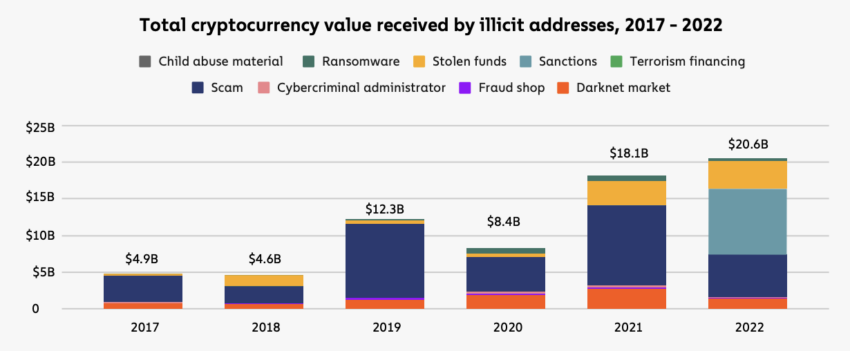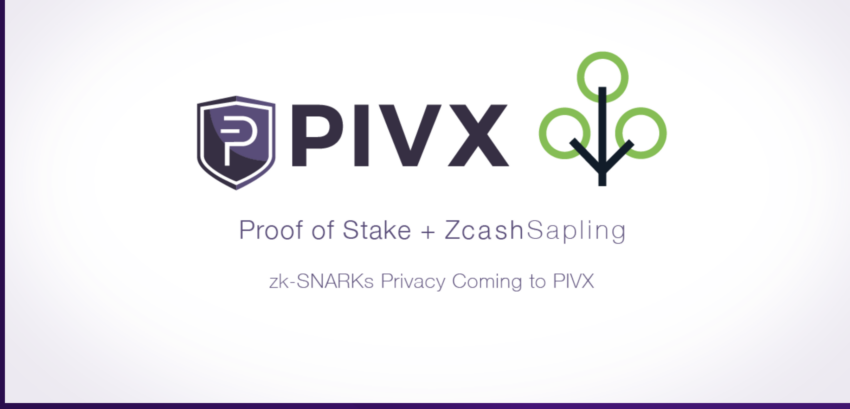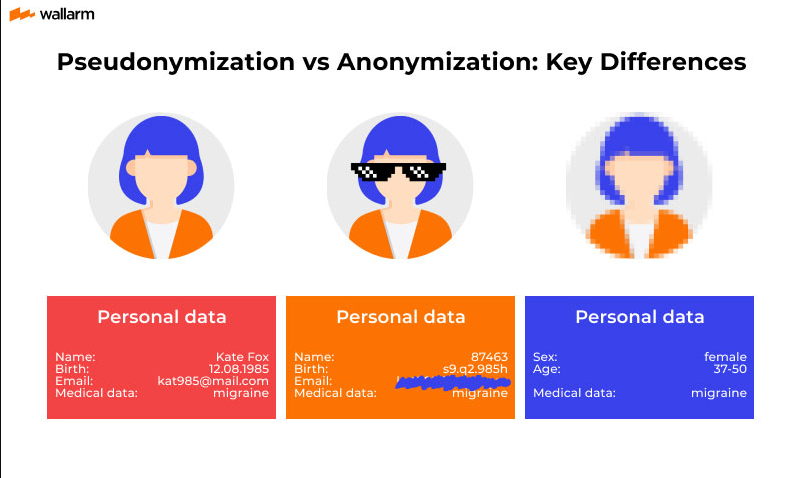Obfuscating identities while transacting is a much-needed privacy-enhancing measure. As individuals, it is common to decline to disclose our identities to others, especially while interacting with specific services, wallet addresses, and accounts. The legacy financial system hinges on the principles of upfront identity declarations — account details, KYC, etc. In contrast, crypto emphasizes privacy-related ideas like anonymity and pseudonymity. And despite certain similarities, anonymity and pseudonymity are drastically different — a contrast we unpack throughout this anonymity vs. pseudonymity explainer.
By the end of this discussion, you should be able to distinguish between pseudonymous and anonymous digital assets. Here’s how the implementation of each concept plays a crucial role in establishing trustlessness.
BeInCrypto Trading Community in Telegram: read reviews on the best crypto platforms & wallets with high level of security, get the hottest news on crypto, read technical analysis on coins & get answers to all your questions from PRO traders & experts!
What is pseudonymous, and what is anonymous?

We all seek privacy. Interacting on social media, shopping, or moving crypto around — there are times when we want to stay away from the public glare. Pseudonymity and anonymity are two effective privacy-ensuring mechanisms with different use cases.
While online anonymity stands for hidden identity, online pseudonymity identifies with shielded identities. But that’s not where the differences end. Here’s how and when implementing these mechanisms can be useful for developing immutable crypto and blockchain-related products and services.
Unpacking pseudonymity
Pseudonomity is a straightforward concept. It is a privacy-ensuring measure that you can use to shroud your identity using a pseudonym. Remember Mark Twain and his popular books — The Adventures of Tom Sawyer and The Adventures of Huckleberry Finn. Well, Mark Twain was a pseudonym used by Samuel Clemens.
A pseudonym is like a constant mask, helping an individual or an activity avoid being recognized. Yet, as a person is still involved, pseudonymity strikes a balance between accountability and privacy.
What are the perks of being pseudonymous?
Pen names aside, pseudonymity offers a wide range of advantages in the digital identity space:
Enhanced internet privacy
Pseudonyms make it easier for users to transact freely. In the crypto realm, these pseudonyms stand for cryptographic addresses, which represent users across blockchain explorers like Etherscan and more. These addresses aren’t associated with names and hence are handy for safeguarding user privacy and mitigating all kinds of privacy concerns.

Fostering participation
Many people actively participate in crypto communities and project-specific discord channels. With pseudonyms, participation significantly improves as open-source projects receive more contributions from individuals who do not want to support and contribute openly. Cryptic names followed by domain extensions like .eth and .sol have surged in popularity, letting people participate with obscured online identities.
Censorship resistance
Pseudonyms play a major role in furthering the concept of decentralization. As there is no centralized authority to exert control and even no individual presence due to pseudonyms, it becomes easier to navigate the perils of censorship. Simply put, if they do not know who you are, how will they stop you, period?
What are the concerns?
Pseuonomity seems all hunky dory. Yet, there are a few issues to keep in mind:
Potential for the illicit
Pseudonymous entities, especially in crypto, are better suited to money laundering and other illicit activities.
Lack of trust
Even though pseudonymity is a privacy-ensuring resource, it might be difficult for new transaction counterparts to trust the credibility of things happening at the other end.

Legal and regulatory concerns
The global regulatory scene hinges on identities involving KYC — something that is anti-pseudonymous. With regulators trying to weed out AML and similar challenges, enforcing steady tax compliance and KYC standards, lawmakers don’t want to work around pseudonymity.
Crypto examples that point to pseudonymity
Both Bitcoin and Ethereum have been siding with pseudonymity for quite some time now. Bitcoin transactions are address-linked, but the addresses are cryptographically obscured and not connected to real-world user identities. The same goes for Ethereum. And as shielded as the transaction addresses are, one can trace them back to a specific address via the public ledger.
A more tech-oriented example of pseudonymity could be Polygon’s zkID — a feature that uses zero-knowledge proofs to privatize digital identities.
Unpacking anonymity
While pseudonymity is like wearing a mask, anonymity relates to wearing one mask after the other to ensure that connecting the personal digital footprint to the real-world identity is virtually impossible.
In crypto and blockchain, anonymity requires using advanced cryptographic tools to hide every aspect of the transaction — sender and receiver details, transaction amount, user data, and other insights.
Why is anonymity necessary?
Unlike pseudonymity, which still allows you to trace transactions to specific locations, online anonymity is much more private. Here are some of the advantages of anonymity, especially in regards to transactions:
Ultimate privacy
Anonymity, without a doubt, offers the highest level of privacy. This aspect becomes useful in case someone wants to make clandestine donations. Also, the concept of anonymity can even extend to physical setups like bitcoin ATMs, which allow you to purchase BTC using fiat. And even though the on-chain transfers are pseudonymous, courtesy of the wallet addresses, using fiat to purchase BTC doesn’t reflect as part of online behavior and doesn’t leave a digital footprint.
Protecting whistleblowers
The concept of anonymity in regard to digital operations can shield the likes of activists and whistleblowers — allowing them to expose unethical practices without worrying about retribution.
Better handling of sensitive transactions
If disclosed, certain transactions in the digital space can reveal sensitive details about a company or an organization. This is where complete anonymity is desirable, ensuring proper shielding of a digital footprint, sensitive information, and user data.
Attackers who are always on the lookout for vulnerabilities and incentivized attack vectors can then find it very hard to pinpoint which organizations to attack.
What is MakerDAO doing in this regard?
MakerDAO, a popular DeFi conglomerate, is (as of May 2023) mulling over an identity-hiding voting proposal to ensure privacy protection. Something called the “whistleblower bounty” will be available if identity-revealing evidence can be shown. If the vote passes, anonymity might be a DeFi-specific standard and not just an option.
“The point is that it should not be possible for potential attackers, bribers, etc., to know which companies or people to target.”
Rune Christensen, founder of MakerDAO: Governance Forum
Are there limitations to anonymity?
As much as we appreciate anonymity, it isn’t without its share of pitfalls. These include:
Increase potential for wrongdoing
Anonymity can be leveraged by wrongdoers to completely shield their identities, furthering the scope for wrongdoings. There is no way to track online behavior — something that might not align with global data protection standards.
Harder to implement
While pseudonymity is a blockchain commonplace, anonymity is harder to implement. Also, if half-cooked, sophisticated back engineering techniques can de-anonymize transactions. And yes, factors like online behavior and IP addresses can also be anonymity-securing deterrents.
Which cryptocurrency projects focus on anonymity?
If you are looking for anonymous crypto projects, here are a few to get you started, along with the technical strategies they use to achieve anonymity.
- Monero: Uses stealth addresses and ring signatures to obscure details.
- PIVX: zK-SNARK protocols for shielding transactions
- ZCoin: Uses a specialized ZeroCoin protocol and Merkle Tree Proofs
- ZCash: Focuses on zK-SNARK-driven transaction shielding

Apart from the mentioned picks, the likes of Komodo, Verge, and more also have technologies and implementations in play to push forth anonymity.
Anonymity vs. pseudonymity: how do they differ

When we compare anonymity and pseudonymity pieces, a few differences stand out. Here are the key ones.
| Anonymity | Pseudonymity |
|---|---|
| High level of privacy | Low level of privacy |
| Better for handling sensitive or transaction information | Less secure for protecting private information |
| Often less or completely untraceable | More likely to be doxxed |
| Typically used to shield activists and whistleblowers | Authors and artists often use pseudonyms |
The need for a specific kind of communication
Think of whale accounts, the specific cryptographically shielded addresses often seen on blockchain explorers, moving funds and cryptos across wallets. Well, those are pseudonymous entities that can aid reputation-building in the crypto space without the account owner disclosing personal information directly. With anonymity, this benefit cannot be realized. Every activity is obscured, and there is no reputation-building involved. The entire focus is on securing internet privacy.
Accountability
With pseudonyms comes accountability. Addresses that aren’t linked with real-world identities can have a presence in the crypto world. For instance, flagging an unscrupulous fund movement following a hack is possible with pseudonymity in play. But with anonymous accounts, there is no accountability, as there is no way any transaction can be traced back to any entity.
Security, privacy, and the differences
While both anonymity and pseudonymity offer additional layers of privacy, anonymity does a better job of securing identities. In the crypto space where immutability is a huge deal, pseudonymity still allows for some traceability, provided the right on-chain forensics are used.
The user experience
Pseudonymity is one of the few reasons that the crypto space is somewhat trackable. From dashboards to holder accounts to exchange inflows, pseudonymity offers a credible experience to the likes of on-chain analysts, helping them make sense of tools, resources, and fund movements in play. With anonymity, all of that isn’t possible. And that can be a reason why some of the cryptos offering anonymity as a service aren’t all that commercially popular.
And finally, anonymity does come with several regulatory concerns, as there is no way a transaction can get back-traced. The recent crackdown concerning a crypto mixer — Tornado Cash — is one of the primary examples of how anonymity can be troublesome for regulators. For the unversed, Tornado Cash is an Ethereum-based mixer capable of making transactions untraceable.
Do note that several bitcoin mixers like YoMix, Sinbad, and more exist — allowing users to experience bitcoin-specific anonymity should they so desire.
The need for pseudonymous entities: real-world examples

Anonymity is desirable, but in the commercial crypto space, pseudonymity helps strike the perfect balance of accountability and privacy — making it a better solution in terms of adoption.
Here are some of the reasons why it is such a desirable crypto-specific tool or, rather, trait:
Privacy takes center-stage
As mentioned, bitcoin uses a pseudonymous approach to handling transactions. And it has worked thus far for the biggest crypto player ever, allowing users to track wallet-specific movements without letting in on the holders’ personal details. Despite a certain amount of traceability, BTC addresses are inherently obscured and can be used for handling daily, standard transactions.
DeFi participation
With pseudonymous identities, it becomes easier for people to participate in DeFi-specific activities. From opening positions across lending protocols to making swaps or enjoying yield farming deals, pseudonymity courtesy of shielded addresses offers privacy along with the ability to earn passively.
NFT-based interactions
Just like DeFi, obscured addresses can also help NFT artists move around with their creations. From hosting NFTs to marketing them secretively on the marketplace, using pseudonyms is a common and desirable strategy to be in the public eye without being in the public eye.
Furthermore, the pseudonymous address can even be programmed alongside smart contracts to push passive royalties directly to creators’ wallets. Something that’s not possible with complete anonymity.
And finally, pseudonymity in the crypto space makes room for new developers to associate themselves with open-source projects. Overall, pseudonymity as a tool is the best way to balance self-expression and individuality while maintaining desired levels of privacy.
Did you know? Satoshi Nakamoto — the name behind Bitcoin — is also a pseudonym. Arguably the most famous one in the crypto space!
The emergence of pseudonymous platforms
Pseudonymity isn’t just a fancy trait anymore. Or even an option. In the modern blockchain space, this privacy-ensuring instrument has evolved into a basic infrastructural tool for several existing and emerging projects.
Decentralized social media
The likes of Lens Protocol, Mastodon, Damus, and BitClout are using a host of pseudonymity-implementing resources to build anti-censorship platforms. These platforms focus on pushing forth freedom of speech and ensuring privacy.

Specialized blockchains
Pseudonomity is slowly becoming a norm for setting up new and specialized blockchains and projects. StealthEX is one such project or exchange with a focus on non-KYC registrations for swapping assets.
And while DeFi and NFTs picked up pace in 2021, the next bull market might see the focus shifting to decentralized social and identity-focused platforms. That is where pseudonymity and anonymity might be considered key drivers.
And it’s not just builders. The growth of AI-focused Discord groups, subreddits, and more has propelled a new wave of pseudonymity, helping users strike a balance between privacy and interactions.
The future of privacy is here
The anonymity vs. pseudonymity debate will likely continue to rage on within the privacy-focused crypto-sphere. And while anonymity is sacred to many, pseudonymity is most practical and perhaps even more desirable in the modern digital era.
With technological advancements like zero-knowledge proofs pushing boundaries and ensuring the development of new pseudonymity-focused projects, the concerns regarding the misuse of anonymity linger. Overall, much greater regulatory clarity is necessary to determine how the concepts of pseudonymity and anonymity are explored in the ever-evolving decentralized world.
Frequently asked questions
Can a pseudonymous user be traced?
What is the difference between pseudonymous and anonymous?
What are some examples of pseudonymous platforms?
How does pseudonymity affect privacy?
What are examples of pseudonymity?
Is Bitcoin anonymous?
What are pseudonymous uses?
Disclaimer
In line with the Trust Project guidelines, the educational content on this website is offered in good faith and for general information purposes only. BeInCrypto prioritizes providing high-quality information, taking the time to research and create informative content for readers. While partners may reward the company with commissions for placements in articles, these commissions do not influence the unbiased, honest, and helpful content creation process. Any action taken by the reader based on this information is strictly at their own risk. Please note that our Terms and Conditions, Privacy Policy, and Disclaimers have been updated.




